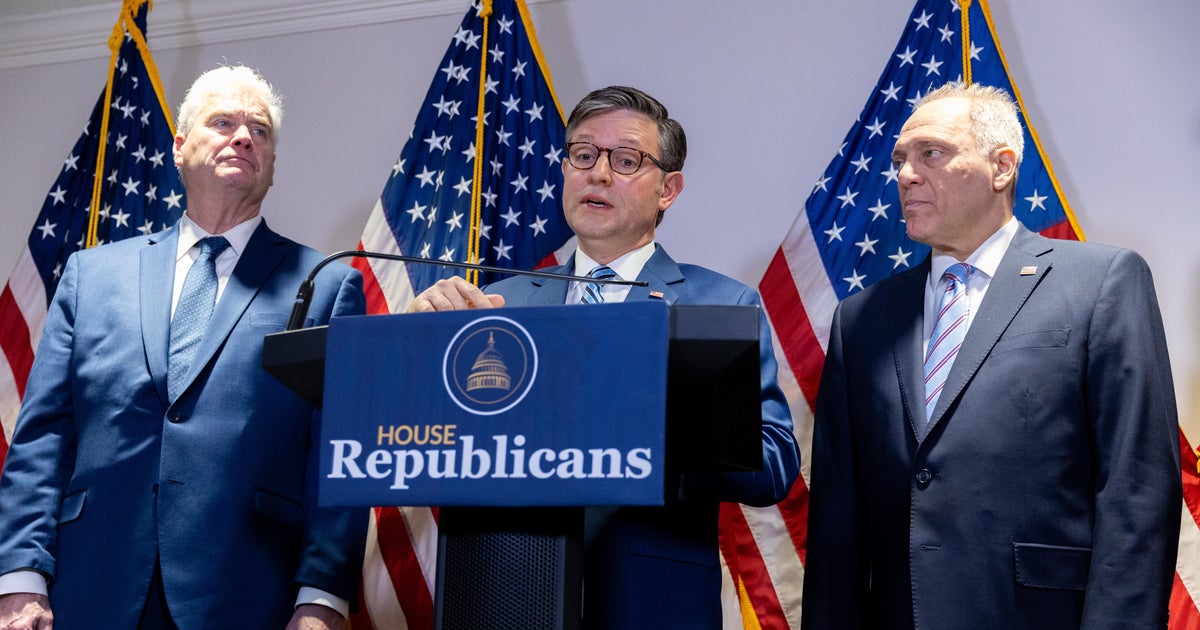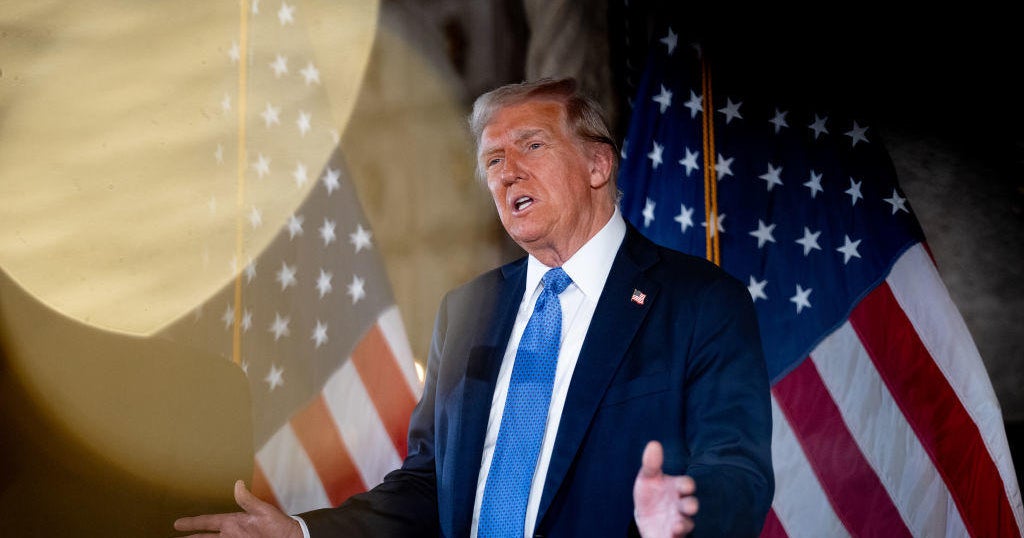Congress veers toward government shutdown after GOP revolt led by Trump, Musk
Washington — Congress' path forward on government funding is in limbo after House Republicans, pushed by Elon Musk and President-elect Donald Trump, torpedoed an initial deal to avert a shutdown before a Friday night deadline.
The House descended into chaos Wednesday when the GOP revolt sank a last-minute funding measure to keep the government operating through early next year. A new path forward remained unclear as of Thursday as Republicans huddled on Capitol Hill, hours after abandoning the deal that House Speaker Mike Johnson reached with Democrats.
The massive end-of-year spending legislation immediately sparked anger from conservatives when it was unveiled two days ago. In addition to extending government funding through March 14, it included disaster aid, health care policy extenders and a pay raise for members of Congress, among other provisions. The disaster relief portion of the bill came with a $110 billion price tag.
Elon Musk, the co-head of Trump's advisory Department of Government Efficiency, chimed in with a barrage of posts Wednesday calling the bill "criminal" and suggestions that Republicans who supported it did not belong in Congress. And the opposition culminated in Trump lambasting the new spending and threatening a primary challenge against any Republican supporting the measure.
The president-elect called on Republicans to strip out the additional spending and added a new element instead: raising or abolishing the debt ceiling. The debt ceiling, which limits how much the government can borrow to pay its bills, is suspended until the first quarter of next year, and Trump said he'd prefer to force President Biden to approve raising the debt ceiling so he wouldn't have to do so.
Trump reiterated his position on Thursday in a phone conversation with CBS News' Robert Costa.
"Number one, the debt ceiling should be thrown out entirely," Trump said. "Number two, a lot of the different things they thought they'd receive [in a recently proposed spending deal] are now going to be thrown out, 100%. And we'll see what happens. We'll see whether or not we have a closure during the Biden administration. But if it's going to take place, it's going to take place during Biden, not during Trump."
Still, Trump said the standoff could be resolved "in a number of ways that would be very good."
Though stripping out most of the additional funding from the now-collapsed deal would satisfy many Republicans, Johnson is likely to need dozens of votes from Democrats, and they are already slamming Johnson for walking away from the agreement. They argue Republicans will shoulder any blame for a potential shutdown.
Democrats met in a caucus meeting Thursday morning. House Minority Leader Hakeem Jeffries said they are "resolved to continue to stand up for the best interests of the American people," while lambasting House Republicans who he said "detonated" the bipartisan agreement because they "have been ordered to shut down the government."
"We are prepared to move forward with the bipartisan agreement that we thought was negotiated in good faith with House Republicans, along with Senate Democrats and Senate Republicans, that meets the needs of the American people at this point in time," Jeffries said. "We are fighting for everyday Americans who will be hurt by a reckless Republican shutdown."
Jeffries said a shutdown can be avoided "if House Republicans will simply do what is right for the American people" by sticking by the bipartisan agreement. The minority leader outlined that he and the speaker are maintaining an "open line of communication" to see if they can "resolve this issue." Jeffries called the debt limit issue and discussion "premature at best."
Spending fight threatens Johnson's speakership
The initial plan to keep the government funded and the chaos that surrounded it also prompted intense criticism of Johnson, including from members of his own party. The full House will vote to elect a speaker on Jan. 3 when the new Congress convenes, and one Republican, Rep. Thomas Massie, has already indicated he won't support him.
Trump has also been signaling that his support for Johnson is contingent on how the Louisiana Republican proceeds. The president-elect told Fox News Digital on Thursday that Johnson would "easily remain speaker" if he "acts decisively and tough" and eliminates "all of the traps being set by Democrats" in the spending package. Asked by NBC News if he still has confidence in Johnson, Trump replied, "We'll see."
"What they had yesterday was unacceptable," Trump told NBC's Garrett Haake. "In many ways it was unacceptable. It's a Democrat trap."
In addition to the slew of add-ons to the spending bill, conservatives are angry with Johnson for carrying out the negotiating process largely outside of the view of rank-and-file members. Rep. Eric Burlison, a Missouri Republican, called it "a total dumpster fire."
A handful of Republicans indicated their support for Johnson's speakership in the new Congress is now in question. With such a narrow majority, it would take only a few to take him down. Massie, a Kentucky Republican, said flatly Wednesday that he won't support Johnson in the speaker's election.
"I'm not voting for him," Massie said. "This solidifies it."
In November, House Republicans backed Johnson to lead for another two years during their leadership elections. During the last speaker fight at the beginning of a new Congress in 2023, the slim Republican majority took 15 rounds to elect former Speaker Kevin McCarthy, who was ousted from the role nine months later, partly due to his handling of government funding.




